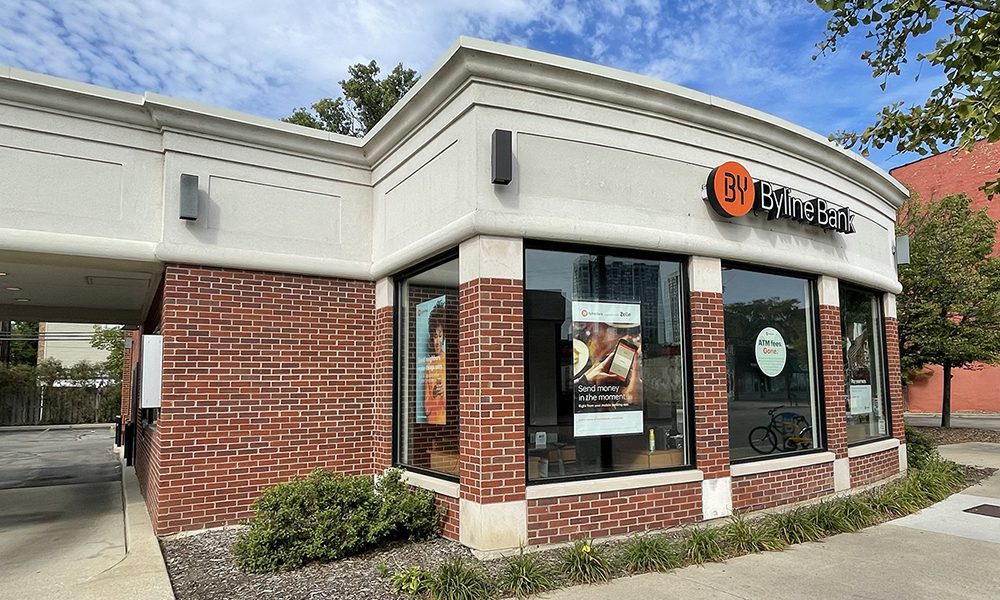Take the first step toward your financial goals with personalized support from Byline Bank.
Navigating the Unique Financing Needs of Franchise Businesses as Growth Continues in 2024

Navigating the Unique Financing Needs of Franchise Businesses as Growth Continues in 2024
Franchise business growth has remained resilient amid a backdrop of economic uncertainty, according to the International Franchise Association (IFA) in its recently unveiled annual Franchising Economic Outlook. With a 2.2 percent increase in 2023, the sector is poised for an additional 1.9 percent growth in 2024, translating to 15,000 new units and 221,000 jobs across the United States, according to the outlook. These figures show the potential within the franchise market, setting a positive tone for prospective investors as well as existing and potential franchisors alike.
Insights from the outlook also indicate a surge in franchise establishments and job creation, with a projected total franchise output of $893.9 billion. Even in the face of macroeconomic factors like high inflation, labor availability, and the cost of capital, franchised businesses continue to outpace the growth of the broader economy.
Given the substantial initial capital needed for franchise fees, equipment and location setup, financing franchise businesses differs significantly from funding independent small businesses, and that’s without even considering the ongoing royalties and marketing fees. Franchises benefit from established brand recognition and support from the franchisor, which can enhance creditworthiness and attract more favorable financing terms. In contrast, independent small businesses often face challenges in securing funding due to a lack of brand recognition and proven business models.
For financial institutions, understanding all these dynamics is important. The unique financing needs of franchise businesses—encompassing start-up capital, expansion funding, and operational costs—require tailored financial solutions to support sustained growth and resilience in a fluctuating economic landscape. As the franchise sector continues to thrive, financial institutions like Byline Bank remain committed to providing the necessary financial expertise and resources to empower franchise owners and contribute to their success.
Crucial Factors in Selecting Your Franchise Funding
For franchise owners choosing a franchise loan, several key considerations can impact the decision-making process and, ultimately, the success of the venture. One key factor is rethinking collateral and understanding enterprise value. Unlike traditional loans that often require tangible assets as collateral, franchise financing typically hinges on the enterprise value derived from the franchise brand’s strength and potential profitability. This valuation considers factors like the franchise concept’s replicability and market consistency, influencing the lender’s assessment of the franchise business’s worth and growth potential.
Additionally, lenders will scrutinize financial metrics such as a business’s earnings before interest, taxes, depreciation and amortization (EBITDA) to gauge a business’s financial health and ability to generate future cash flow, underscoring the importance of presenting solid historical financials and projections.
Choosing the right loan structure is also vital. While conventional commercial loans may suit franchises with a strong brand presence and proven financial track record, Small Business Administration loans could be more suitable for newer franchises or those with lower enterprise values. The loan type selected should align with your franchise’s growth stage, financial standing, and long-term objectives, ensuring it supports your expansion plans effectively.
Why Selecting a Bank That Understands Your Business is Crucial
Working with a bank that understands franchise operations and can tailor financing solutions to your specific needs is crucial. A knowledgeable lender can offer customized financial products and advisory support that aligns with your business goals, whether you operate a single franchise location or a larger network. This relationship not only helps franchise owners to secure initial funding but also positions their franchise for sustained growth and resilience.
Byline Bank’s lending relationship with Brodersen Management, for example, illustrates the importance of tailored financial expertise. John Brodersen faced the challenge of finding a bank capable of navigating franchise operations and the specific regulatory landscape of Puerto Rico. When previous banking relationships fell short due to a lack of understanding, Byline Bank stepped in with comprehensive knowledge and appreciation for the nuances of conducting business on the island.
Byline Bank supported Brodersen’s vision by leveraging the bank’s extensive network and expertise, including insights from Brodersen’s attorney. Byline’s leadership and local knowledge from their tenure at Banco Popular enabled them to seamlessly navigate Puerto Rico’s regulatory environment. The bank’s measured, experienced approach ensured compliance with local laws and facilitated the recapitalization of Brodersen Management’s Popeyes restaurants. This relationship extended beyond conventional lending, addressing the specific needs of franchise operators across diverse geographies. For Brodersen Management, finding a bank that truly understood these regional complexities made all the difference.
Selecting a financial institution that specializes in small business lending and understands the intricacies of franchises is crucial for sustained success in the franchising sector. With projections indicating significant expansion in franchise units and job creation, the need for customized financial solutions to support franchise operations is more critical than ever. Financial institutions like Byline Bank, which take a proactive approach in understanding the unique needs of franchise businesses—from initial capital requirements to ongoing operational support—empower franchise owners by providing strategic planning assistance and help navigating complex regulatory environments.




